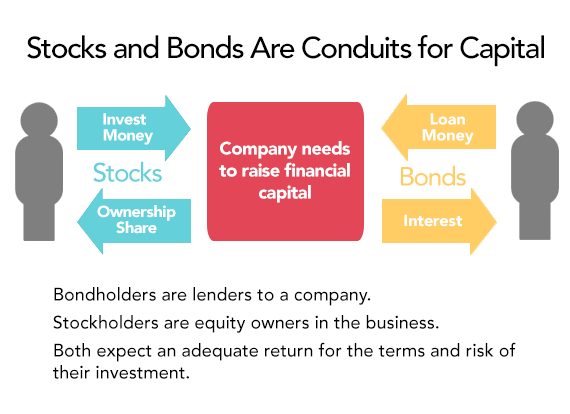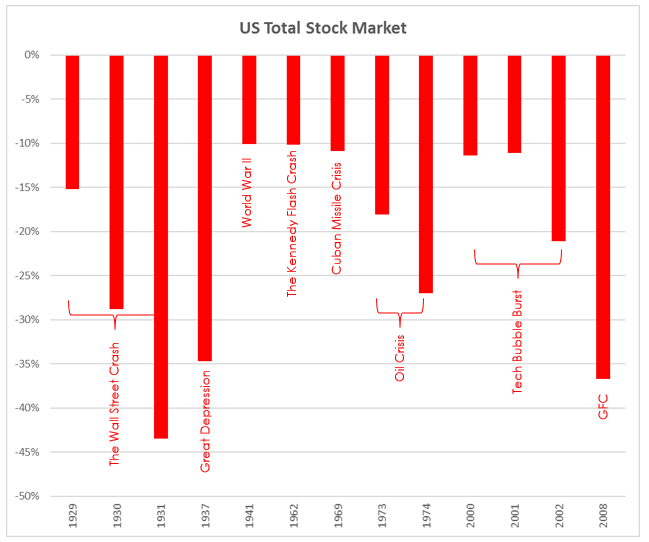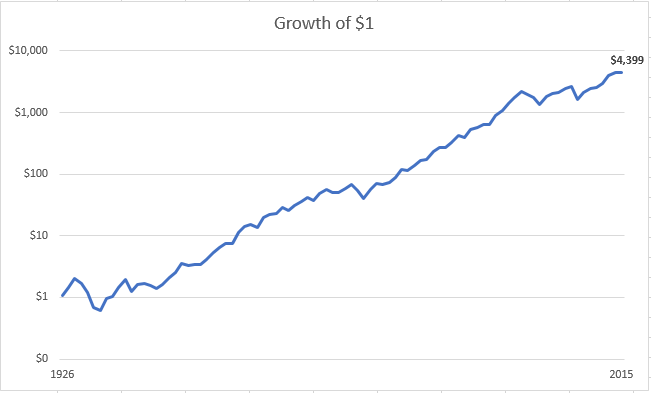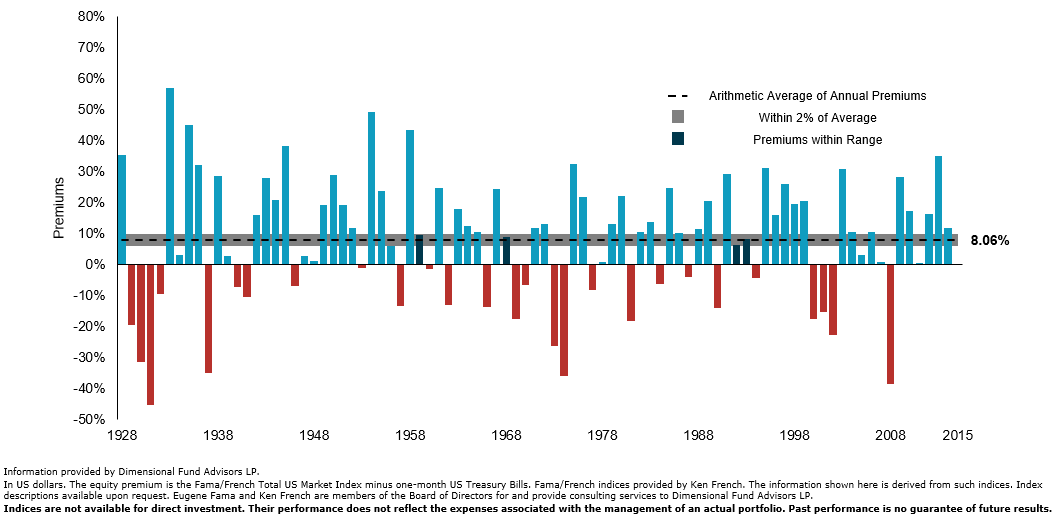Guess What? Capitalism Works and You Are Owed a Return
16 February 2017

Companies and countries have used markets for years to raise money from public investors to create economic growth and generate profits. In return for buying an ownership in a company or lending money to it, investors receive a return which compensates them for the risk that they are taking in the event that the company or country defaults on its obligations.

Source: Dimensional Fund Advisors, GYC
However, what investors must be aware is that not all companies are the same, and likewise for countries. Some companies are inherently riskier due to the nature of their business or type of management. As such, investing with a narrow scope exposes an investor to higher risks as the likelihood that he or she is holding on to one or a few bad eggs is higher. Why we say capitalism works is that the value of the stock market is much higher today than it was 100 years ago. Despite the ups and downs, economic crises, wars and other scary moments, investors who had stayed the course would have made a profit.
We have an example on the US total stock market below. The reason why we use this dataset is that it is very accurate (data from CRSP – The Center for Research in Security Prices), and has one of the longest running histories compared to other stock markets around the world. We looked at the calendar year since 1926 and charted all the occasions where investors would have lost 10% of their capital or more. Surprised? Such crises have happened with a regular occurrence, not to mention the other occasions where investors ended negative but not as high as -10%.

Source: GYC
Here is the comforting part: despite all these big losses that investors have suffered throughout the years, $1 invested at the beginning in 1926 would have become $4,399 by the end of 2015 – a stunning result from compounding.

Source: GYC
Lets add another fun fact. If you invest in the stock market, then you are owed a return, plain and simple. We meet many investors who claim to be doing well with their own investments – typically mentioning that their personal stock holdings frequently makes around 5% per annum. Well, guess what? These investors are actually underperforming the market. It is great if you are making 5% this year, when the stock market is down -20%, but it is not great if you are making that 5% when the stock market is up 30%.
So, what do we mean by “you are owed a return”? For the risk you take for investing in the stock market over very safe 1-month government bills, you are compensated with an average return of 8.06% over time. That means any investor getting a long-run return of less than 8% is being fleeced out of that return, either by investing wrongly or in something very high cost. Whilst the chart also shows that premiums do go up and down (some years the stock market loses money), nearly 70% of the years have been positive.

Source: Dimensional Fund Advisors
#
If you have found this article useful and would like to schedule a complimentary session with one of our advisers, you can click the button below or email us at customercare@gyc.com.sg.
IMPORTANT NOTES: All rights reserved. The above article or post is strictly for information purposes and should not be construed as an offer or solicitation to deal in any product offered by GYC Financial Advisory. The above information or any portion thereof should not be reproduced, published, or used in any manner without the prior written consent of GYC. You may forward or share the link to the article or post to other persons using the share buttons above. Any projections, simulations or other forward-looking statements regarding future events or performance of the financial markets are not necessarily indicative of, and may differ from, actual events or results. Neither is past performance necessarily indicative of future performance. All forms of trading and investments carry risks, including losing your investment capital. You may wish to seek advice from a financial adviser before making a commitment to invest in any investment product. In the event you choose not to seek advice from a financial adviser, you should consider whether the investment product is suitable for you. Accordingly, neither GYC nor any of our directors, employees or Representatives can accept any liability whatsoever for any loss, whether direct or indirect, or consequential loss, that may arise from the use of information or opinions provided.









